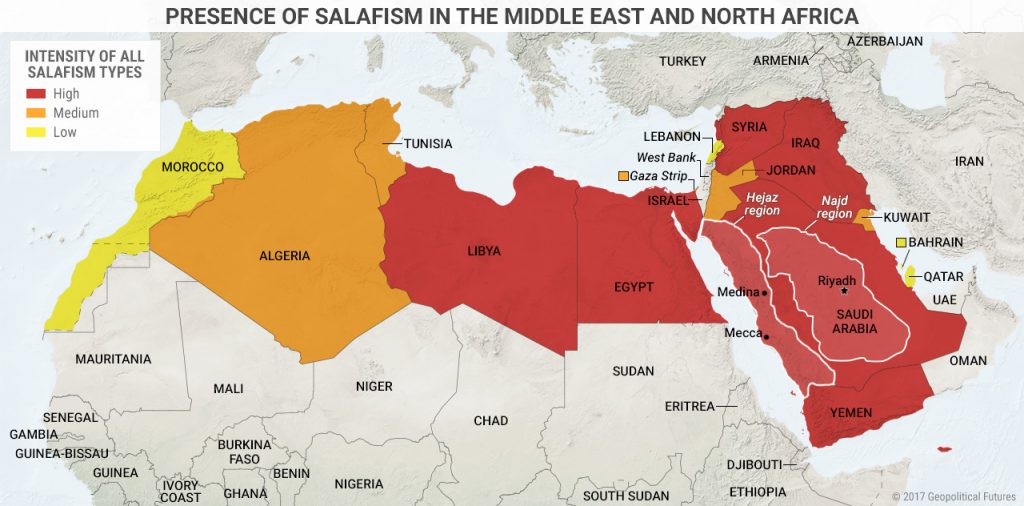Quietists are the most dominant strand of Salafism and seek to promote ultraconservative interpretations of Islam through peaceful proselytization. This structural contradiction between Saudi Arabia’s geopolitical behavior and the religious ideals it supported led to the growth of the jihadist branch. Jihadists also pursue an ultraconservative religious agenda but believe in the use of armed insurrection to achieve it. The electoral branch grew largely out of the Arab Spring movement and involves Salafists who want to use the electoral process as a means to operationalize their orthodox religious views via government.
Though Salafism has spread to different parts of the Muslim world, its core is rooted in the Arab world where it was born. This area is also experiencing the greatest turmoil created by the jihadist strand of Salafism. So far, there have not been any cases where jihadist Salafists have embraced electoral Salafism – this space is currently dominated by those who were formerly of the quietist Salafist realm. However, when exhaustion from war produces political settlements in the distant future, electoral Salafism could have a role to play as a potential way for some of today’s jihadist Salafists to join mainstream politics.







